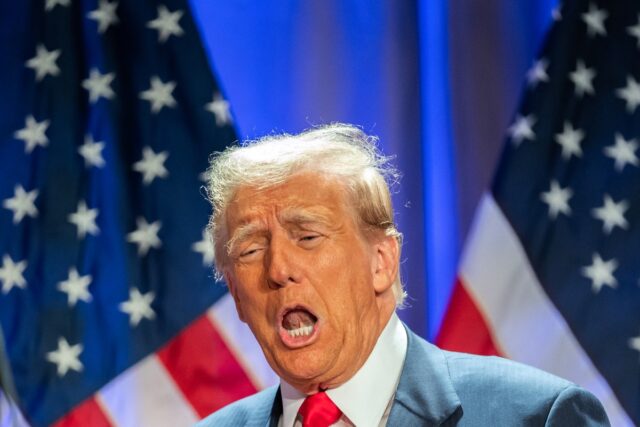
Keep up with the latest news and be part of our weekly giveaways and airtime sharing; follow our WhatsApp channel for more updates. Click to Follow us
As Donald Trump begins his second term as U.S. president, Africa is at a critical crossroads, facing the possibility of strained economic ties with the United States. With Trump’s “America First” doctrine likely to dominate his agenda again, the continent must prepare for potential shocks to trade policies, currency stability, and foreign investments.
Analysts have urged the continent to prepare for surprises, stressing the need to recalibrate strategies anticipating shifts in United States foreign policy. The Institute for Security Studies (ISS) noted that during Trump’s first term, his “America First” philosophy prioritised domestic interests over international partnerships, raising concerns about the future of United States-Africa relations.
The Director of the Centre for the Promotion of Private Enterprise (CPPE), Muda Yusuf, warned that the African Growth and Opportunity Act (AGOA) may not survive Trump’s highly transactional approach to governance. Yusuf further noted that these policies could strengthen the American dollar, creating significant challenges for African economies reliant on imports.
A stronger dollar would make imports more expensive, particularly for Nigeria, where the naira will likely face further depreciation due to capital flow reversals as investors seek higher United States interest rates. Yusuf suggested that due to these issues, nations such as China and members of the European Union may seize the opportunity to deepen their partnerships with African countries, potentially offering more favourable trade terms.
Despite these challenges, some analysts believe Africa could benefit from the shifting dynamics. A diminished focus on the continent by the United States could enable China and the EU to strengthen their economic ties with Africa, filling the void left by reduced American trade engagement.
The International Monetary Fund (IMF) expressed alarm, stating that Trump’s tariff-driven trade policies could heighten global trade tensions and disrupt supply chains. The IMF predicts that increased import taxes in the United States would raise the cost of selling goods to the world’s largest economy.
Trump has already threatened steep tariffs, including 100 percent duties on the BRICS bloc, if they pursue plans to introduce a rival currency to the dollar. The IMF warned Trump and his economic advisers against making dramatic policy shifts that could jeopardise the stability of the U.S. and global economies.
Analysts and experts have expressed concerns about the potential impact of Trump’s policies on Africa, including the possibility of reduced aid and support. However, some have also noted that Africa could benefit from the shifting dynamics, particularly if the continent is able to diversify its trade partnerships and negotiate better bilateral deals.
The Socio-Economic Rights and Accountability Project (SERAP) urged U.S. President-elect Donald Trump and his incoming administration to identify America-based proceeds of corruption linked to former and current Nigerian public officials and their associates.
SERAP also called for the full recovery and transparent return of such stolen assets to Nigeria. The organisation stressed that returned assets must meet strict transparency and accountability standards to ensure the funds benefit the Nigerian people.
SERAP appealed to Trump to direct the U.S. Department of Justice to initiate civil asset forfeiture proceedings against proceeds of corruption traced to Nigerian public officials and their associates. The group said this would fulfil several noncontroversial commitments made by the United States to assist Nigeria in asset recovery efforts.
Additionally, SERAP urged Trump to identify and publish the names of Nigerian public officials suspected of corruption and depositing its proceeds in U.S. banks. The group requested that existing U.S. presidential proclamations be applied to temporarily ban such individuals from entering the United States.
The appeal followed the recent return of $52.88 million in forfeited corruption proceeds linked to former Petroleum Resources Minister Diezani Alison-Madueke. In a letter signed by SERAP’s deputy director, Kolawole Oluwadare, the organisation noted that Alison-Madueke’s looted assets represent only a tiny fraction of the estimated $500 billion reportedly stolen from Nigeria and located in the United States or under U.S. jurisdiction.
“Our requests are in the public interest and aligned with the UN Convention against Corruption, to which both the U.S. and Nigeria are signatories,” the letter stated. SERAP expressed concern that proceeds of corruption from Nigeria continue to be deposited in U.S. banks and other locations under American jurisdiction.
The organisation emphasised the need for the U.S. government to address legal loopholes that enable Nigerian officials to deposit and conceal their ill-gotten assets. “Returning proceeds of corruption to Nigeria is a developmental imperative. By doing so, the U.S. would contribute to efforts to reduce poverty in Nigeria and achieve the Sustainable Development Goals,” SERAP said.
The organisation highlighted America’s obligation under the UN Convention against Corruption to trace, freeze, seize, and return proceeds of corruption to Nigeria. SERAP also argued that imposing a temporary travel ban on Nigerian officials suspected of corruption would not violate due process or the presumption of innocence, provided the reasons for such sanctions are communicated to those affected.
Please don’t forget to “Allow the notification” so you will be the first to get our gist when we publish it.
Drop your comment in the section below, and don’t forget to share the post.







